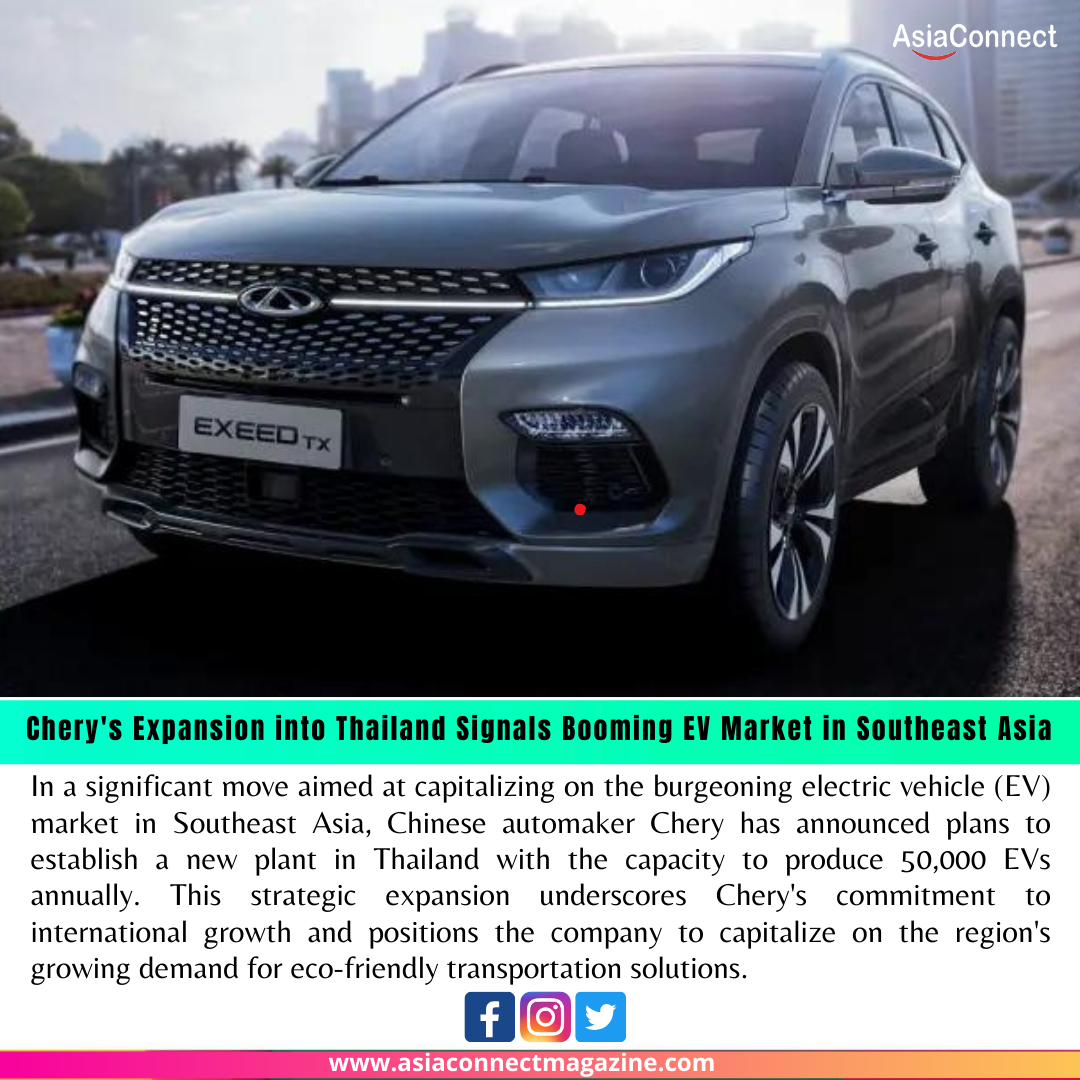In a significant move aimed at capitalizing on the burgeoning electric vehicle (EV) market in Southeast Asia, Chinese automaker Chery has announced plans to establish a new plant in Thailand with the capacity to produce 50,000 EVs annually. This strategic expansion underscores Chery’s commitment to international growth and positions the company to capitalize on the region’s growing demand for eco-friendly transportation solutions.
Chery’s decision to set up a manufacturing facility in Thailand marks a notable milestone for the company and highlights the increasing significance of Southeast Asia as a key market for EV adoption. With its favorable regulatory environment, growing infrastructure for electric mobility, and rising consumer interest in sustainable transportation options, the region presents a lucrative opportunity for automakers seeking to expand their presence in the EV sector.
The establishment of the new plant represents Chery’s latest foray into the Southeast Asian market, making it the eighth Chinese car company to establish a base in Thailand. This move underscores the growing trend of Chinese automakers seeking to leverage their expertise in EV technology and manufacturing capabilities to gain a foothold in the region’s rapidly evolving automotive landscape.
By setting up production facilities in Thailand, Chery aims to enhance its competitiveness in the Southeast Asian market and strengthen its position as a leading player in the global EV industry. The new plant will enable the company to localize production and reduce manufacturing costs, thereby improving its ability to offer competitive pricing and cater to the specific needs of regional customers.
Moreover, Chery’s investment in Thailand is expected to generate significant economic benefits for the country, including job creation, technology transfer, and the development of local supply chains. The establishment of the new plant is likely to create employment opportunities across various sectors, including manufacturing, logistics, and engineering, contributing to Thailand’s economic growth and industrial development.
The decision to focus on EV production aligns with Chery’s long-term strategic vision of promoting sustainable mobility solutions and reducing carbon emissions. As governments worldwide implement stricter regulations aimed at reducing greenhouse gas emissions and combating climate change, the demand for EVs is expected to continue rising, presenting automakers with both opportunities and challenges.
Chery’s entry into the Thai market comes at a time of rapid transformation in the automotive industry, driven by technological advancements, shifting consumer preferences, and evolving regulatory landscapes. By investing in EV manufacturing capabilities, the company is positioning itself to capitalize on these trends and establish a strong presence in the Southeast Asian EV market.
However, Chery will face stiff competition from both domestic and international automakers vying for market share in Thailand’s rapidly expanding EV sector. To succeed in this competitive landscape, the company will need to differentiate its offerings, prioritize innovation, and build strong partnerships with local stakeholders.
In conclusion, Chery’s decision to establish a new EV manufacturing plant in Thailand underscores the company’s strategic focus on international expansion and its commitment to promoting sustainable mobility solutions. As Southeast Asia emerges as a key growth market for EVs, Chery is well-positioned to capitalize on the region’s vast potential and play a leading role in shaping the future of electric transportation in the region and beyond.





